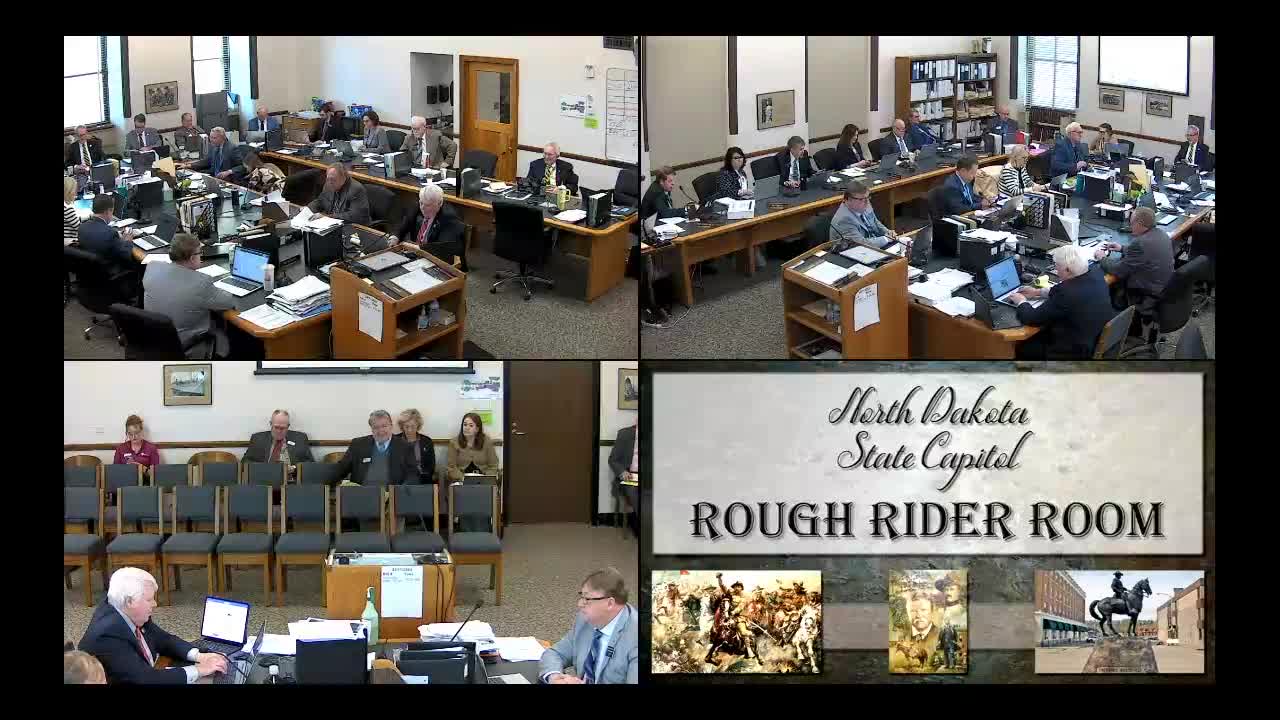Appropriations committee votes to not pass library bill after debate over fiscal impacts and criminal-exposure language
Get AI-powered insights, summaries, and transcripts
Subscribe
Summary
After extended debate about fiscal and legal implications, the House Appropriations Committee voted to recommend a do-not-pass on Senate Bill 2307, the library bill, citing unanswered questions about costs to local governments and potential criminal exposure changes.
The House Appropriations Committee voted to recommend a do-not-pass on Senate Bill 2307, commonly described in committee as the “library bill,” after prolonged discussion over fiscal implications, constitutional concerns and potential criminal-law exposure for public institutions.
Committee members spent extensive time debating an amendment that would remove the bill’s fiscal note and turn the measure into a policy-only bill; the amendment was defeated on a roll call. Following consideration, Representative Murphy moved a do-not-pass recommendation on the version presented to the committee; the motion carried on a recorded roll call (committee clerk recorded the final committee vote as 22 yes, 0 no and 1 absent).
Members raised several concerns during debate. Representative Murphy and other opponents said the committee had not held a public hearing on the proposed amendment, so agencies and local governments had not had the opportunity to testify on costs. Representative Kempanick described a constitutional concern: he said the bill’s withholding mechanism could conflict with the state’s constitutional duty to fund education and indicated Legislative Counsel had been asked to outline the mechanism.
Representative Richter and Representative Hansen highlighted potential fiscal costs to county prosecutors and political subdivisions. Representative Hansen said language in the amendment changes the word “shall” to “may” in a section that could open felony obscenity charges to colleges, universities, museums and public libraries — entities that currently are not exposed under the existing obscenity framework — and he warned that appeals could be lodged repeatedly up to the state’s attorney level, including by out-of-state actors.
Representative Bile and others stressed that the committee had not treated the amendment as a hearing and therefore had not heard from stakeholders, state agencies or the public before considering the substantive policy change. Multiple members said the fiscal impacts on counties and institutions needed to be quantified and discussed on the record.
Following discussion, the committee declined to adopt the amendment and then voted on a do-not-pass recommendation for SB 2307 as presented. The committee recorded the final do-not-pass motion as carried with the recorded roll showing a majority in favor; members said the floor should consider the fiscal implications and stakeholder testimony before any final action.
The committee’s record shows multiple roll calls during consideration of the amendment and final motion; the transcript records members’ roll-call responses and the committee chair closed the file after the do-not-pass recommendation.
